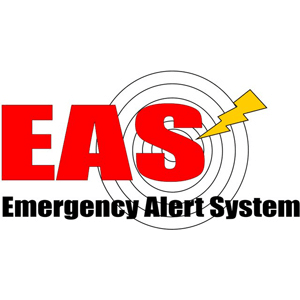EAS and Amber Alerts
NAB Says The EAS Future Lies With Software, Not Hardware
Both RadioInk and InsideRadio reported this week on conversations between the National Association of Broadcasters and the FCC regarding the future of EAS equipment, an issue that is growing in importance with the recent announcement from Sage Alerting Systems that it will not longer manufacture its current version of its EAS hardware.
Read MoreStatewide Tornado Drill w/EAS March 20
On Wednesday, March 20, 2024 at 1 p.m. Eastern, broadcasters should be prepared for a special EAS RMT promoting Severe Weather Awareness Week (March 17-23). This is coordinated to air with local communities who have the option of sounding their tornado sirens at the same time. The 1 p.m. test is promoted as the Statewide Tornado Drill.
Read MoreFCC Proposes New EAS Event Code and Adding 13 Additional Languages to Alerts
In the past week, the FCC has proposed some updates to the current EAS system. On Wednesday (2/21), Radio World reported that FCC Chairwoman Jessica Rosenworcel is proposing adding a new event code to the EAS system for missing and endangered persons. This would be those who would not qualify for an Amber Alert.
Read MoreNationwide EAS Test Set for October 4 – Start Your Preparations Now
FEMA and the FCC announced that this year’s Nationwide EAS Test is scheduled for October 4, 2023 (with a back-up date of October 11 in case there is a real or threatened event that occurs around October 4). FEMA will transmit the nationwide test of the EAS at 2:20 pm EDT on October 4, 2023 using the Integrated Public Alert and Warning System (IPAWS), the Internet-delivered warning system that has been required for broadcasters for about a dozen years.
Read MoreFEMA and FCC Plan Nationwide Emergency Alert Test for October 4, 2023
FEMA and the FCC announced August 3 that this year’s Nationwide EAS Test is scheduled for October 4, 2023 (with a back-up date of October 11). FEMA issued this Release about the test. The FCC issued a Public Notice which includes a list of recommended steps that broadcasters should take to prepare for the alert.
Read MoreEAS Software Upgrade Update
As a reminder, the FCC has enacted new rules that affect the programming of EAS decoders. All stations are required to install the updated software by December 12th, 2023. Stations should not to wait until the last minute to secure and install the updated software.
Read MoreBudget Now for EAS Upgrades
FCC-mandated changes to the Emergency Alert System are scheduled to go into effect on December 12. These changes may require software and/or hardware updates that broadcasters should budget for now.
Read MoreFCC Approves Michigan State EAS Plan
Michigan’s updated Emergency Alert System plan has been approved by the FCC. The MAB and State Emergency Communications Committee (SECC) received notice of the approval on December 29.
Read MoreFCC Issues Alert on DASDEC EAS Equipment
On November 23, 2022, the Cybersecurity and Infrastructure Security Agency (CISA) issued an Advisory on security vulnerabilities in DASDEC EAS encoder/decoder devices sold by Digital Alert Systems (formerly Monroe Electronics).
Read MoreFCC Looks at EAS Rules – Requires That Broadcast Alerts Default to CAP, and Seeks Comments on Securing the System
At each of the last two of the FCC’s recent regular monthly open meetings, the Commission addressed EAS issues that affect broadcasters. In one case, it adopted new rules that will, among other things, require that broadcasters use on-air the “IPAWS” internet-delivered emergency message in the CAP format, if the broadcaster receives the alert in both the CAP and traditional over-the-air formats.
Read More


